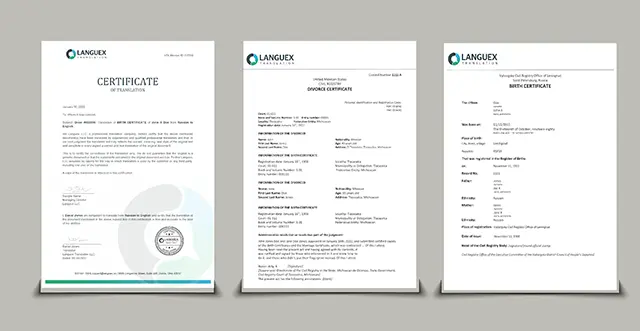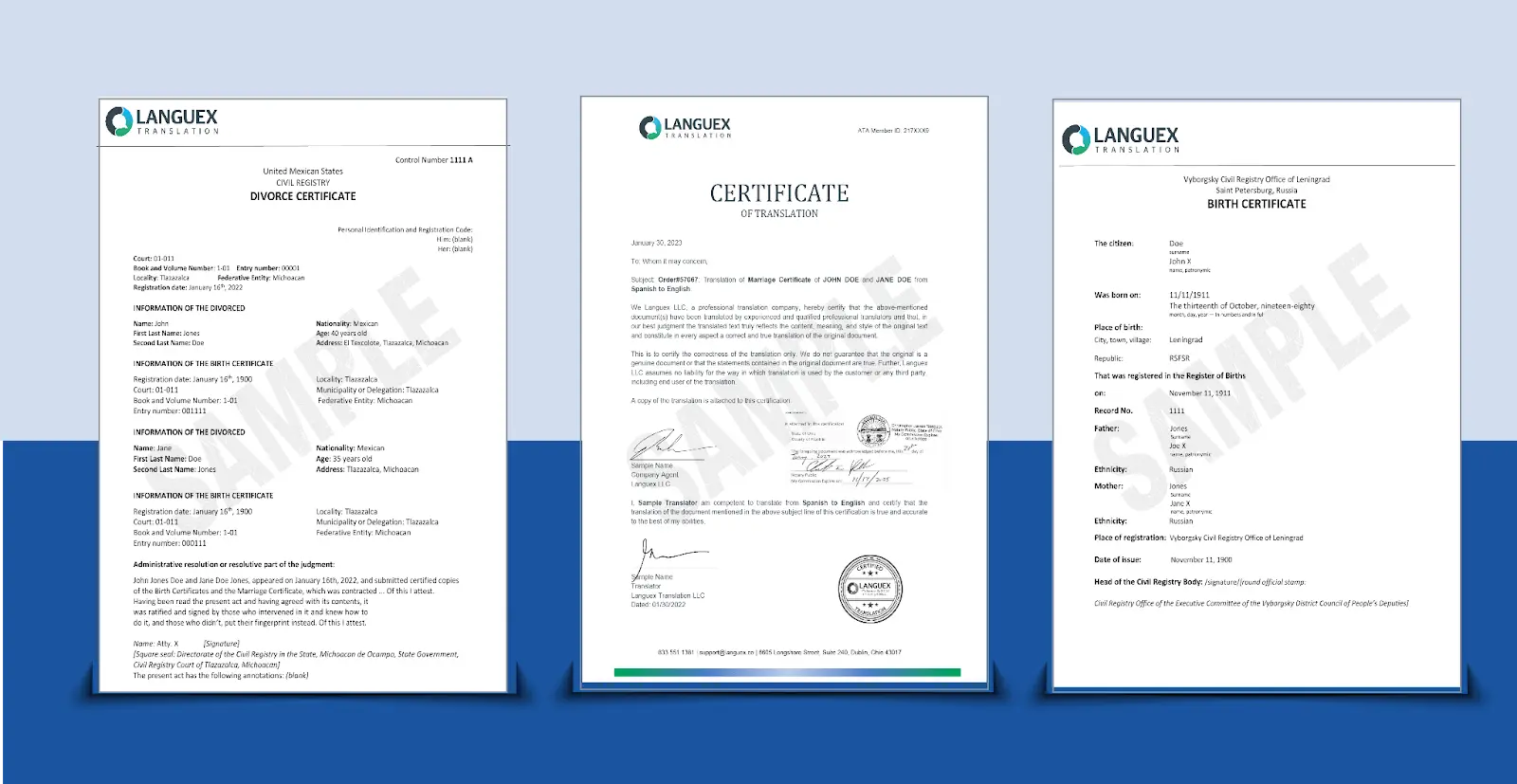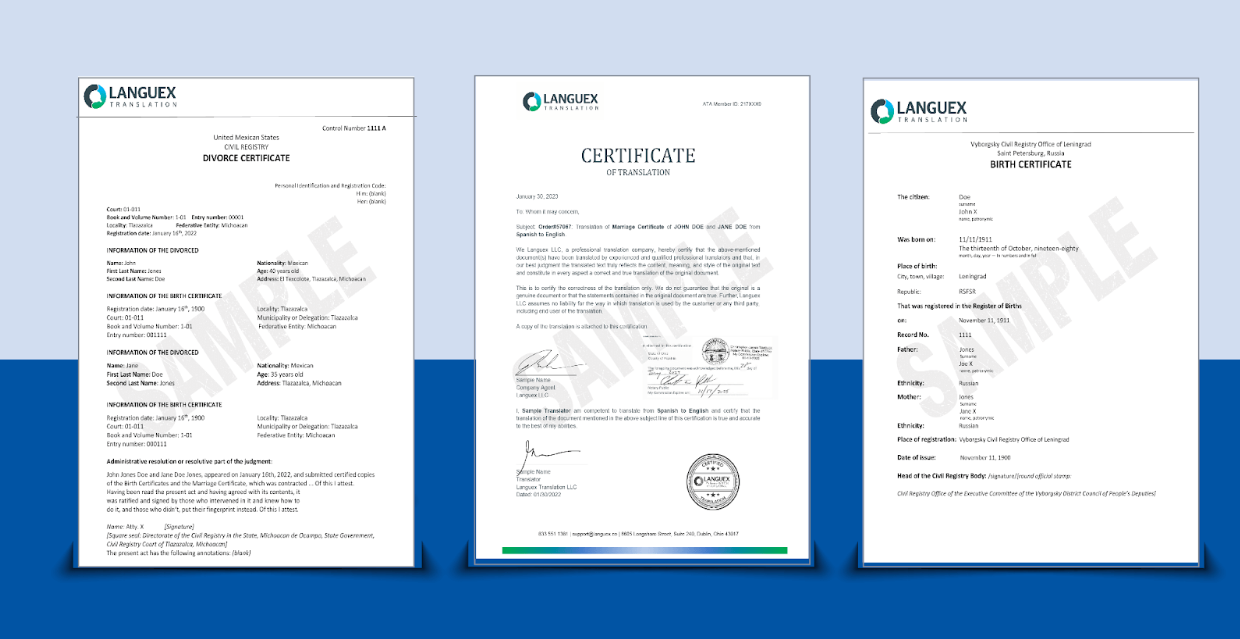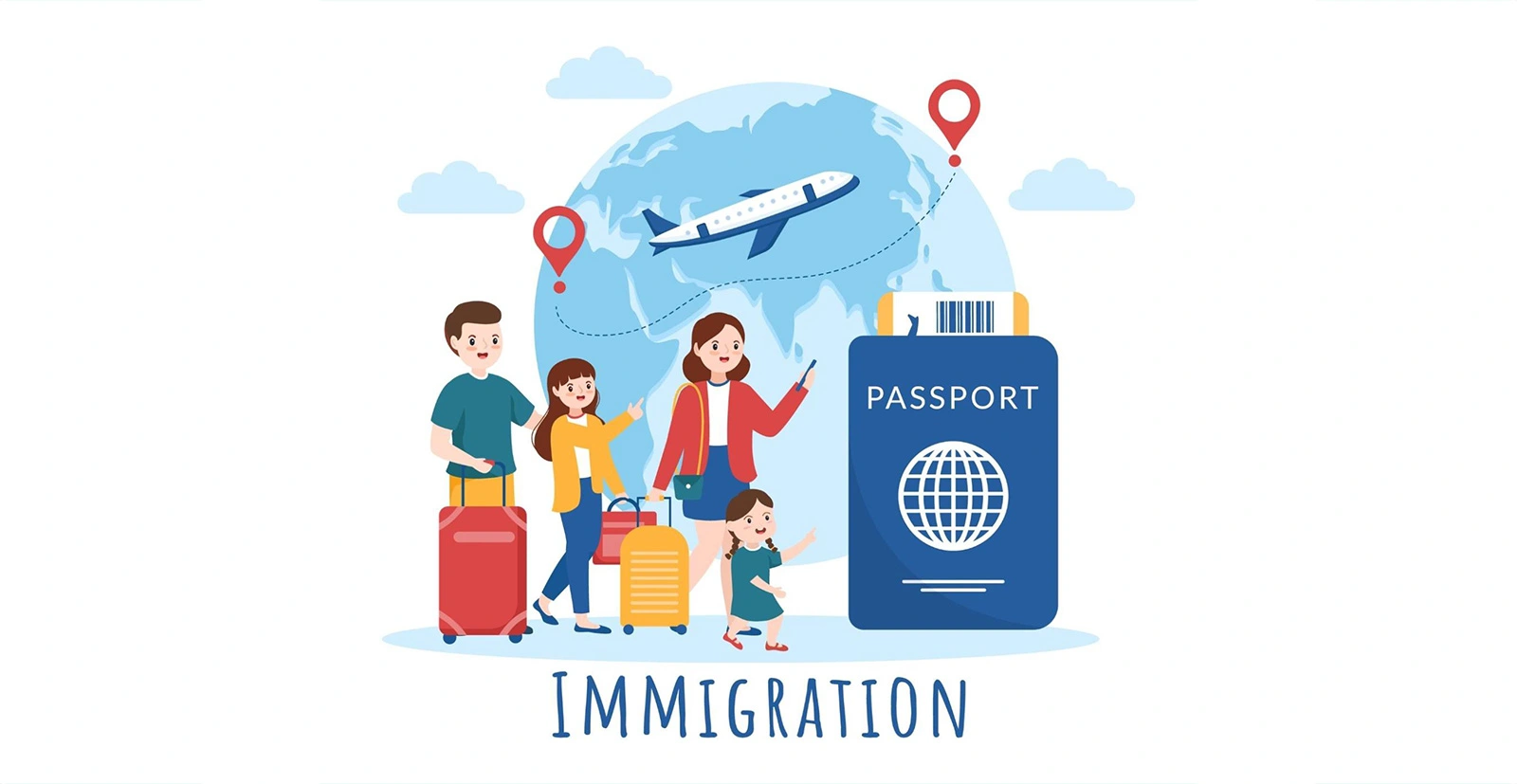In this guide, you’ll learn the differences between Standard vs. Certified Translations.
Standard Translation
Standard translation is used for day-to-day content where no certificate of translation is required. These translations are word-for-word transcriptions of source documents; the translation is not formatted as the original but delivered in editable form.
Standard translations include letters, documents, journals, and family mementos. Some business translation service examples are employee manuals, records, website content, white papers, case studies, business communications, marketing collateral, policy manuals, product descriptions, and scientific journals.
A person could have legal or otherwise documents translated for personal use in the Standard format and bypass the certification and notarization process and cost.
Standard translations are charged on a per-word basis.
Certified Translation
A Certified translation is a word-for-word translation of a source document accompanied by a signed statement from a certified translator, which attests to the translation’s accuracy but not the original document’s validity. The certification letter attests to the translator’s qualifications, the completeness and accuracy of the translation, the identification of the translated document and language, and the translator’s name, signature, and date.
In other words, a translated document becomes certified when the translator attaches a signed declaration (Certification Statement) pledging:
- What type of document has been translated
- The document’s original language and translation language
- The translator’s affirmation that they are proficient in the origin and translation language
- The translated document is a word-for-word, complete, and accurate translation
- The Certifier’s:
- Name
- Signature
- Date of certification
- Address
Governmental agencies and most legal, financial, regulatory, and academic institutions require certified translations when submitting foreign-language documents.
For example, the United States Citizenship and Immigration Services require a USCIS certified translation. Other Certified examples are birth, marriage, and death certificates, vaccination records, criminal records, deeds, diplomas, and other school records.
Certified translations are charged on a per-page (250 words) basis.
What to Consider When Hiring a Professional Translation Services Company?
You may be disappointed with the results if you choose an official document translation service solely on delivery speed and price. Here’s a bullet list to start you thinking about vital characteristics of the translation process that may be more important.
- Does the company use human translators?
- Is the translator bilingual, fluent in both languages, and do they understand the culture and nuances of the locale?
- Does the company guarantee prompt on-time delivery?
- Was a firm price for the translation quoted before the work started, and were there no hidden fees?
- Were free revisions and free formatting offered?
- Was there a 100% satisfaction guarantee?
- Does the company have good customer reviews at sites like Trustpilot?
- Does the company have positive testimonials on its website?
- Did you talk with a past customer who had a positive experience dealing with the company?
Languex is the premier translation service company. Languex performs Standard and Certified document translations and knows when each is best used. Languex is a corporate member of the American Translator Association (ATA). Their service is fast, accurate, and affordable.
Order Your Translation Today!




